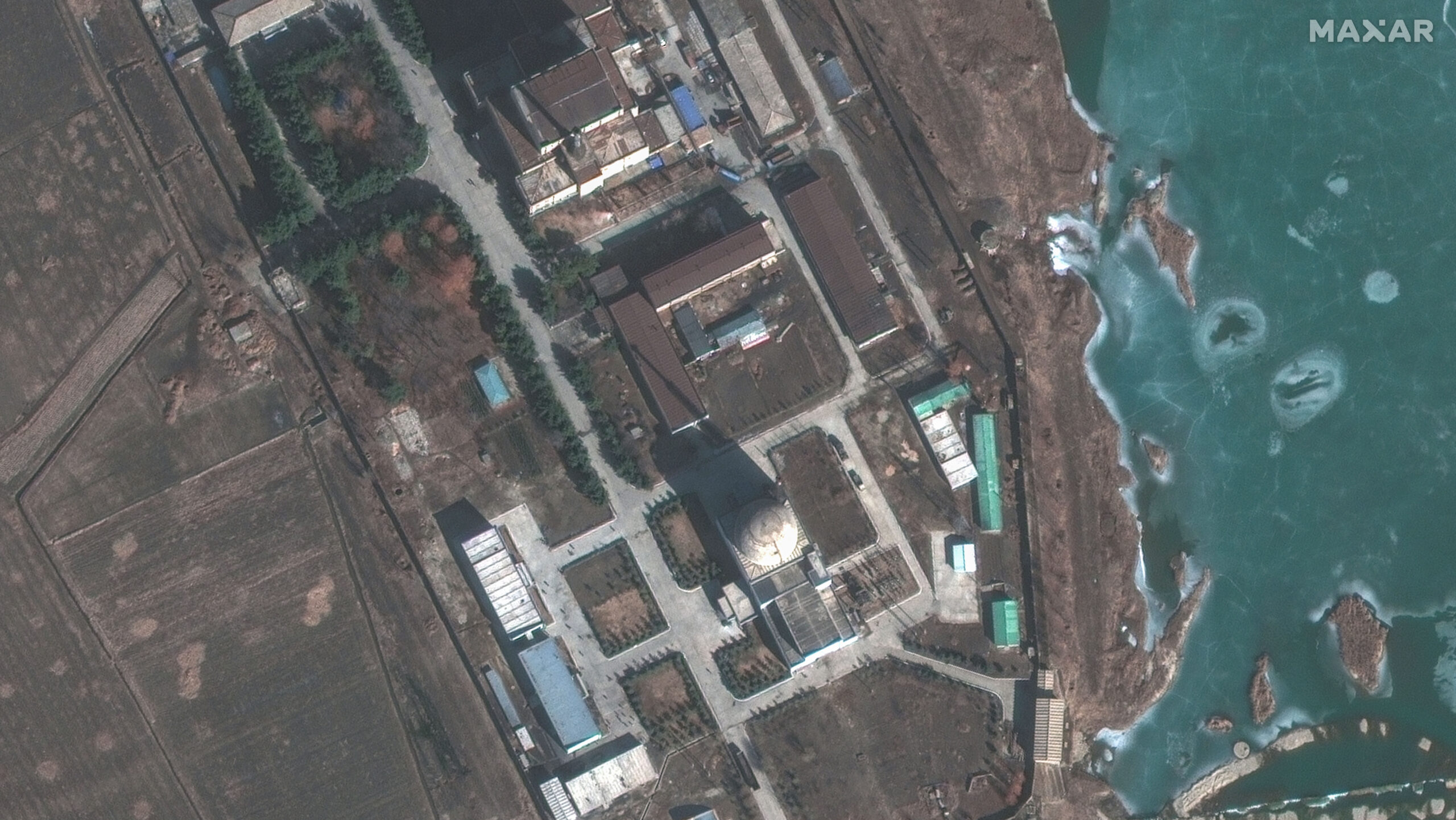
WASHINGTON — As the Biden administration grows increasingly worried by Pyongyang’s “burgeoning” arms trade relationship with Russia, the National Geospatial-Intelligence Agency (NGA) is looking to commercial providers to update baseline information about North Korea that it can use to create maps and other intelligence products.
“In particular for this solicitation, NGA is looking for updates to a database of political, economic, cultural and other government-related facilities, which will be a follow-on to a contract awarded in 2020,” a spokesperson told Breaking Defense.
Industry has until March 29 to respond to the Feb. 27 call for bids, which is seeking “foundational data” on “North Korean economic, industrial, and infrastructure facilities identified using native North Korean nomenclature.”
The NGA spokesperson explained that foundational data “describes physical and cultural characteristics, including elevation, coordinates, topography, geographic names, and human geography, as well as our earth sciences data (gravity, magnetics, geodetic surveys, etc.).”
The spy agency, which gathers information from intelligence sources — primarily imagery from aircraft, drones and satellites, but also from human sources and computer systems — to make sophisticated maps, 3D models and the like of areas of US interest around the globe. NGA also recently took over the Pentagon’s flagship artificial intelligence project, Project Maven.
Such geospatial intelligence, or GEOINT, is used for example by military commanders in planning operations, and even for targeting weapons. In recent years, NGA has been increasingly turning to the private sector, such as commercial remote sensing satellite operators, to augment its analysis with unclassified data.
“For foundational data in particular, we rely on commercial data providers. Approximately 90 [percent] of our foundational data is unclassified, which helps us share products more broadly with partners and allies across the globe,” the NGA spokesperson said.
Under the North Korea solicitation, the chosen contractor needs to be able to provide a first set of data “within 20 days of contract signature,” according to the agency’s statement of work. That would be followed by monthly updates, to include “new construction, error corrections, feature updates, and facilities that are newly mentioned in North Korea press.”
The anticipated contract is for two years, but the NGA documentation does not provide a funding level as the spy agency’s budget is classified. Neither would the agency reveal what firm held the previous contract.

